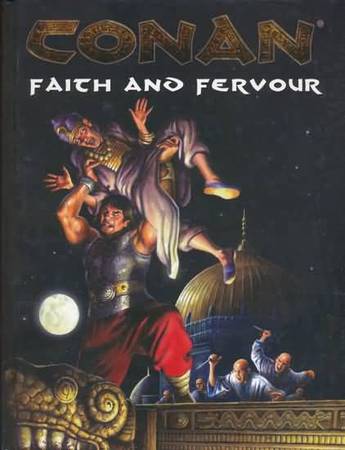Establish the relationship between the gods.
Here's a thought;
As an example, let's say your world has 12 god/desses (gods for the sake of brevity). And that each god has one of the months as its own. During its "home" month, certain domain magics have precedence over others, and outside of that month, especially on a month belonging to a God whose role is in opposition, their magic fades.
Let's say that August is the month of Harvest, and January is the month of rebirth.
That could mean that the god of August is the god of Reaping, symbolising the scythe and the death (cutting) of the crops.
January is the start of the year and so the god of January is the god of Rebirth.
Potentially January is the month where necromancy is strongest due to the proximity of the death of the old year and the birth of the new; the veil between death and life is thinnest then, and so necromancy spells like Raise Dead, Speak With Dead, etc are at their most potent.
August meanwhile, despite its Reaping connotations, represents Healing. The harvest is cut down in order to provide sustenance for the months ahead, and so while its god is the Reaping god, he nonetheless provides power for spells such as Goodberry, Healing Word, Cure Wounds, etc.
This would affect how the religions following each God would interact with one another. Each church would recognise every other church as they are all symbiotically linked with one another, as each month is linked to the next.
September could represent the god of contests, or war, as once the fields are harvested they are ripe for use as battlefields or fields of contests such as races, wrestling, and gatherings of people. This month's god could therefore be not a god of war but a god of physical excellence. Warriors would be drawn to him, but so would monks, and potentially bards or people connected to sociability due to the presence of large spectacles of physical prowess. Perhaps he is the Gaming God, and represents Luck, the luck that every combatant/contestant seeks.
April could be the spring month. Like January, new life is seen in the spring, but unlike January which is a metaphysical new life, April is earthbound fecundity. The god of April could be the god of love, sensuality, and passion.
And so on.
As a religion, how would this play out?
Mechanically, in game, in each "home" month, perhaps only then could spells of level 6 or higher be cast. This would affect not just clerical magic but all magic that falls within that month's influence. Arcane, Wild Magic, the whole nine yards.
Perhaps for three months this effect carries on so that January is most potent in January, powerful in February, strong in March, and average between April and June, while being weak between July and September and weakest from October to the year's end.
The only spell casters unlimited by this would be Warlocks, who draw their power not from the Calendar (as you might dub the pantheon), but from entities outside, literally, of Time. They would be seen as outsiders, and may have to dress their displays of power in accordance with the accepted flow of power or risk a stoning from the devout. Perhaps this conflict is a central tenet of faith for all churches within the Calendar and frames the worldview of the people, fearing the end of time as being a chaos that goes against the order of the world.
In this case, old age would be valued. The elderly exemplify the 'correct' passage of time, with elders being accorded the greatest honour. Younger citizens would not be found in places of high honour. This in itself might make activity that limits long life (such as adventuring due to its dangers) something that is frowned upon. Or perhaps valued - the adventurers operate on the borders and edges of the regulated world keeping the normal citizenry protected from the godless, chaotic forces of the world.
Each church would have its own rituals and its own "companion" churches with which they share power - eg August is the third month of June's influence, the second month of July's, and would be connected to September and October as its own three month power run months.
So those August churches would control reaping - perhaps in August people would typically observe rites of cleansing and decluttering (healing their own messiness and untidiness) and giving to charity or the needy (healing others); beggars would benefit from this largesse for three months but come November would be chased away.
As September is August's second month, the festivities that take place in that month draw a lot of the charitable giving, with contests among the less fortunate providing the opportunity to win fame and favour, a way out of poverty.
October might be the month of Shedding. The trees lose their leaves, and their naked boughs start to show their true forms, thus making it the month of the god of divination, of seeing the true essence of things.
This might feed into August's influence as being the month when those unfortunate are sorted from those unworthy. It might be a time for excessive displays of devotion as a consequence. It feeds into September's Luck aspect as ameliorating luck with foresight - October's churches are practical folks, perhaps quite fearful.
And so on.
As I say, just a thought, but all of that came from a concept of what the gods represent.



